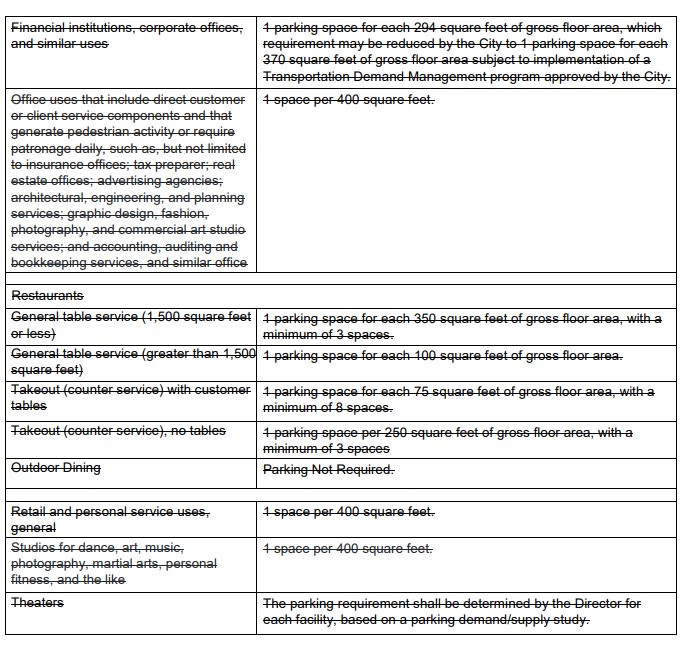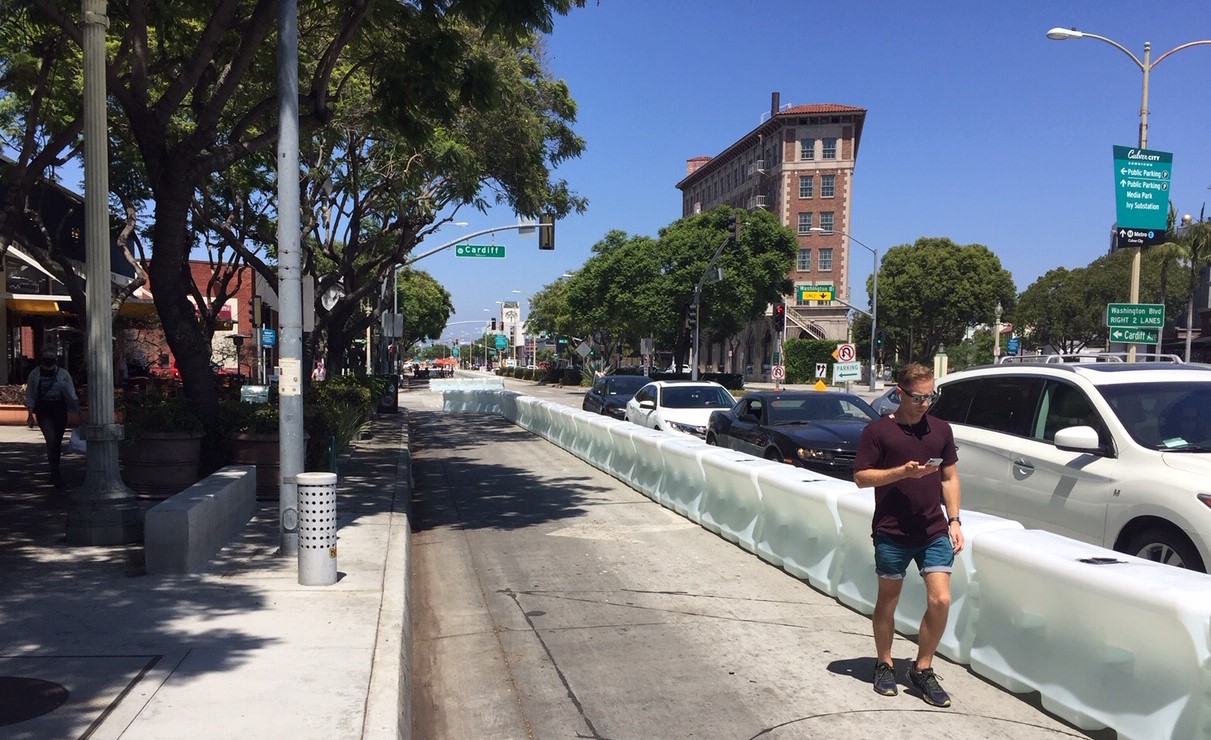At last night's council meeting, Culver City abolished minimum parking requirements citywide.
"I cannot think of a single good reason to require all of society to pay for parking," wrote Culver City Councilmember Alex Fisch. "There is robust evidence that mandatory parking prevents affordable housing from being built, causes people to drive, and increases the cost of literally everything."
Typically, cities legally mandate parking minimums for specific types of uses: a new restaurant would be required to have one parking space per 100 square feet of floor area, a new residential building would be required to have 2.5 parking spaces per apartment, etc.
These requirements are the vestige of what parking expert Don Shoup terms a pseudoscience. Briefly: a long time ago, someone studied the kind of parking some - predominantly suburban - restaurants had. Then, decades ago, cities required all restaurants to conform to that baseline with an excessive quantity of parking. Fisch stated that parking requirements "used across the country are based on . . . nothing. They are made up and passed on from city council to city council without any critical examination or reflection."
Does a downtown restaurant need the same amount of parking as one in suburban strip mall? No. Does a 20-unit residential building across the street from a light rail station need the same amount of parking as suburban 20-unit building? Not necessarily. So parking should be tailored to an individual project, not one-size-fits-all. Which is what Culver City now does.
Culver City's new policy does not mean that Culver City's new restaurants and new housing will have no parking. Developers will still include parking in new developments; they just won't be asked by the city to meet legally required minimums. The ordinance itself states, "The amendment eliminates minimum required parking but will not preclude the provision of parking."
City Council first asked to look at more evidence-based parking reform after carrying forward past councils' work that actually required a fee to reduce parking. While the policy ship slowly changed direction, many local climate, housing, and safe streets advocates organized and educated the public. By the time eliminating mandates came to city council, only ten or so people objected, and it seemed likely that they had simply never encountered any of the academic or journalistic attention to the issue.
Last night's vote was 3-2, with Mayor Daniel Lee, and Councilmembers Yasmine-Imani McMorrin and Fisch voting in favor, and Vice Mayor Albert Vera and Councilmember Göran Eriksson opposed.
Hundreds of U.S. cities have successfully abolished their parking requirements. Buffalo, New York, did away with its parking mandates in 2017. Hartford, Connecticut, did the same that year. The Twin Cities, Minneapolis and St. Paul, Minnesota, followed suit in 2021. Last night, alongside Culver City, Cambridge, Massachusetts, joined the club.
Several California cities eliminated their parking mandates: Sacramento, Berkeley, Emeryville, and Alameda. San Diego enacted parking reforms that eliminated business parking requirements in quality transit areas. San Jose enacted a similar reform, striking parking requirements from many areas. Under the leadership of Assemblymember Laura Friedman, the State of California recently enacted A.B. 2097 which will prohibit cities from requiring parking near quality transit as of January 1, 2023.
Culver City appears to be L.A. County's first citywide lifting of parking mandates. A few cities - Lancaster, Los Angeles, and Santa Monica - have removed parking requirements in specific areas, mainly downtowns.







